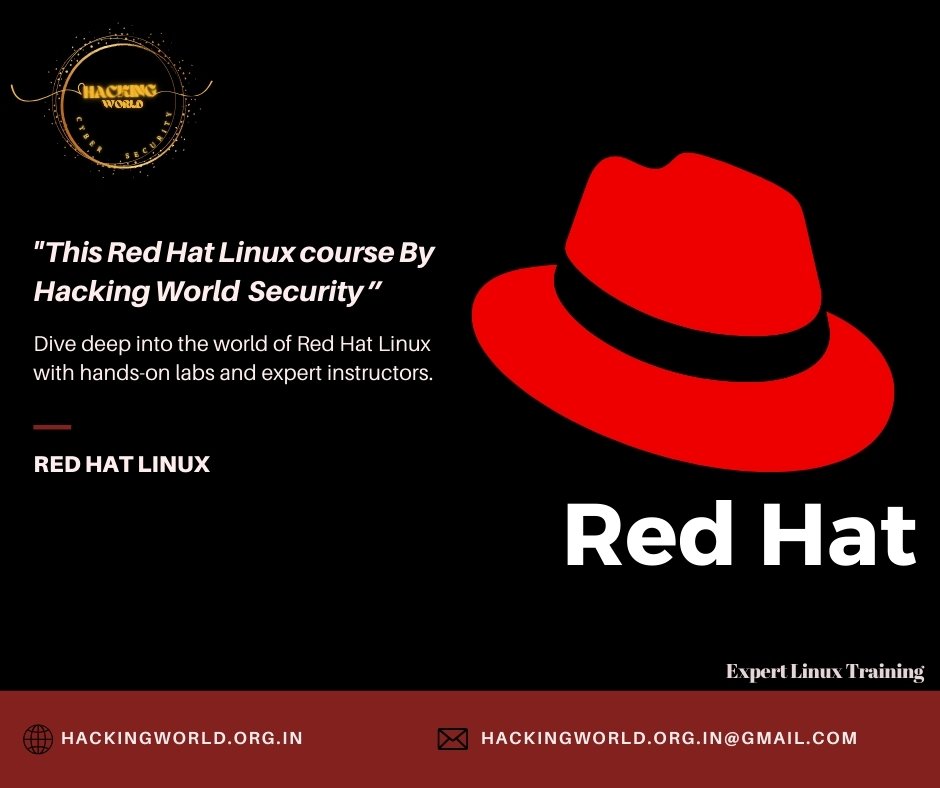



RHCSA is an acronym for Red Hat Certified System Administrator, which is an entry-level certification course that is based on the various aspects of system administration, including the installation and configuration of a Red Hat Enterprise Linux system.
3000 Students Reviews
Unlock the power of Linux with the best Linux Essentials Course in India, designed for aspiring IT professionals, cybersecurity enthusiasts, and system administrators. This course provides a comprehensive introduction to Linux as an operating system, covering all the fundamental concepts and essential command-line operations that form the backbone of Linux expertise.
At Hacking World Cyber Security, we take pride in delivering industry-leading Linux training at our state-of-the-art training centers in Jaipur, Rajasthan, India. Our market-researched curriculum is crafted by experienced cybersecurity professionals and Linux experts to ensure that students gain real-world skills demanded by top organizations.
If you’re looking for top-quality Linux training in India, guided by highly experienced instructors and expert mentors, then the Linux Essentials Certification Course at Hacking World Cyber Security is the perfect choice for you. This course is designed to enhance your knowledge and technical skills with a practical, career-oriented approach at our state-of-the-art training centers in Manpur, Rajasthan, and Bathinda, Punjab.
By enrolling in this premium Linux certification program, you will gain in-depth expertise in Linux essentials, covering everything from fundamental commands to advanced system management. This course not only helps you master Linux administration but also prepares you for a successful career in IT, cybersecurity, and Red Hat certifications.
In today’s competitive IT landscape, Linux expertise has become a mandatory requirement for top organizations when hiring skilled professionals. Employers now seek certified Linux experts who have undergone hands-on training under the guidance of industry-experienced professionals.
A valid Linux Essentials Certification, backed by practical training and real-world experience, significantly boosts your chances of securing high-paying job roles in IT, cybersecurity, and system administration.
At Hacking World Cyber Security, the Best Linux Training Institute in India, you will receive expert-led training that prepares you for real-world Linux challenges. Our proactive instructors ensure that every student gains the knowledge, confidence, and skills to pass certification exams and secure rewarding career opportunities.
🚀 Take the first step towards a successful Linux career!
📞 Call +91-9315713237 now to enroll.
ls, cd, pwd, etc.)find, grep, history)screen, tmux)cp, mv, rm, touch)chmod, chown, umask)grep, find, awk, sed)tar, zip, gzip, bzip2)cat, less, more, nano, vi Editorsgrep, sed, awkuseradd, usermod, passwd)groupadd, gpasswd, groupmod)at, cron, systemd timers)ps, top, htop, kill)nice, renice)systemctl and journalctlrsyslog, journalctl)logrotate for Log Managementvmstat, iotop, netstat)nmcli, ifconfig)fdisk, mkfs, tune2fs, and xfstar, zip, gzip, bzip2)scp, rsync, sftp)dnf, yum)sysctl, grubby)cron, anacron)Podman, Docker)tuned, iostat, vmstat, and sar for Performance TuningThe Linux Essentials Course at Hacking World Cyber Security is designed to provide industry-leading training with a strong focus on practical learning, AI-driven automation, and cybersecurity integration. Our expert-led program ensures that students gain real-world skills to excel in Linux system administration, networking, and security.
✅ Comprehensive Linux Training – Covers everything from basic commands to advanced system management.
✅ Hands-on Learning Approach – Practical labs, real-world projects, and interactive exercises.
✅ AI-Powered Linux Automation – Learn how AI enhances system monitoring, security, and automation.
✅ Industry-Certified Trainers – Expert instructors with real-world experience in Linux and cybersecurity.
✅ Security & Networking Integration – Master firewall configurations, SSH security, and network management.
✅ Certification-Oriented Curriculum – Prepares students for RHCSA, Linux certifications, and high-paying IT roles.
✅ State-of-the-Art Training Centers – Available at Jaipur, Rajasthan in India locations.
✅ Career-Focused Guidance – Get resume-building support, interview preparation, and job placement assistance.
Join Hacking World Cyber Security and become a Linux expert with practical skills and certification readiness!
🚀 Start your journey today!
📞 Call +91-9315713237 for more details.